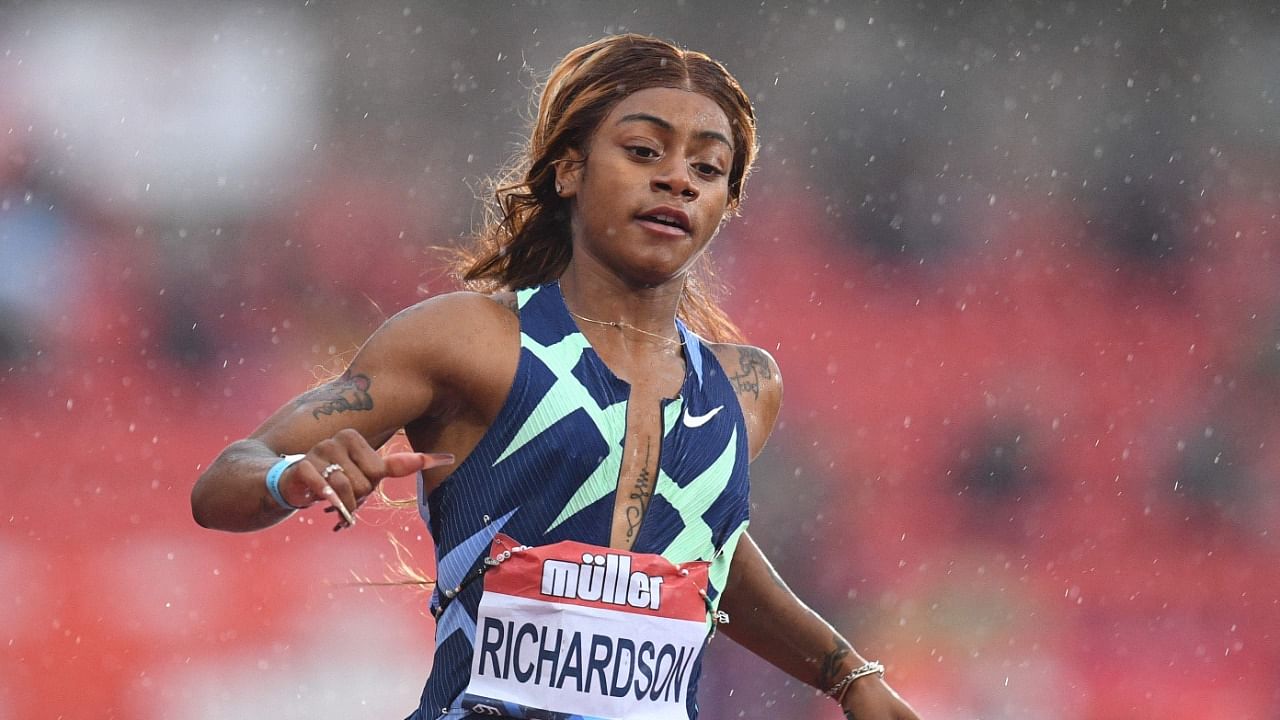
American sprint sensation Sha'Carri Richardson confirmed Friday she tested positive for marijuana at the US Olympic athletics trials and will be barred from the 100m at the Tokyo Games.
Speaking on US Olympic telecaster NBC's Today show, 21-year-old Richardson said she took marijuana to cope with "a state of emotional pain" after learning of the death of her biological mother from a reporter at the US Olympic trials last month in Eugene, Oregon.
The US Anti-Doping Agency announced moments after her confession that Richardson has accepted a one-month ban from June 28, meaning her 100m victory at the trials has been cancelled.
"I would like to say to my fans, my family and my sponsors I apologize," Richardson said. "I apologize for the fact that I didn't know how to control my emotions or deal with my emotions during that time.
"I greatly apologize if I let you guys down, and I did. And I just want y'all to know this will be the last time the Olympics don't see Sha'Carri Richardson and this will be the last time the US doesn't come home with a gold medal in the 100."
Richardson had become the sixth-fastest woman ever at the distance with a time of 10.72sec at a Florida meet in April and was seen as a contender to become the first American woman to win Olympic 100m gold since Gail Devers in 1996.
While marijuana is legal in the state of Oregon, it is on the list of World Anti-Doping Agency banned substances.
"The rules are clear, but this is heartbreaking on many levels," US Anti-Doping Agency chief executive officer Travis Tygart said.
"Hopefully, her acceptance of responsibility and apology will be an important example to us all that we can successfully overcome our regrettable decisions, despite the costly consequences of this one to her."
Richardson might be able to participate in the 4x100m relay, but that would require her to be selected for the squad by USA Track and Field and approved by the US Olympic Committee.
"Right now I'm just putting all of my time and energy into dealing with what I need to do within myself," Richardson said. "So if i'm allowed to receive that blessing, then I'm grateful for it. If not, now I'll just focus on myself."
While not dealing with the subject of Richardson on a relay team, USA Track and Field pledged in a statement to help her handle the mental health issues that pushed her to marijuana for relief.
"Sha'Carri Richardson's situation is incredibly unfortunate and devastating for everyone involved," USA Track and Field said.
"Athlete health and well-being continue to be one of USATF's most critical priorities and we will work with Sha'Carri to ensure she has ample resources to overcome any mental health challenges now and in the future."
Richardson, vowing she will never take steroids, joined a growing list of athletes talking about the mental struggles of being a world-class performer while hiding pain from the public.
"My mental health, leading up to the Games, I was expected to be a record-breaking time, so just with that pressure in itself was also hard," Richardson said.
"To hear that information come from a complete stranger, I was definitely triggered. It was shocking. From there just blinded by emotions, blinded by bad news, blinded by just hurting, hiding hurt.
"I know that I can't hide myself so at least in some type of way I was trying to hide my pain. I still have to go out and put on a performance for my dream.
"I know what I did. I know what I'm supposed to do, I'm allowed, and I still made that decision.
"I just say don't judge me because I'm human. I just happen to run a little faster."